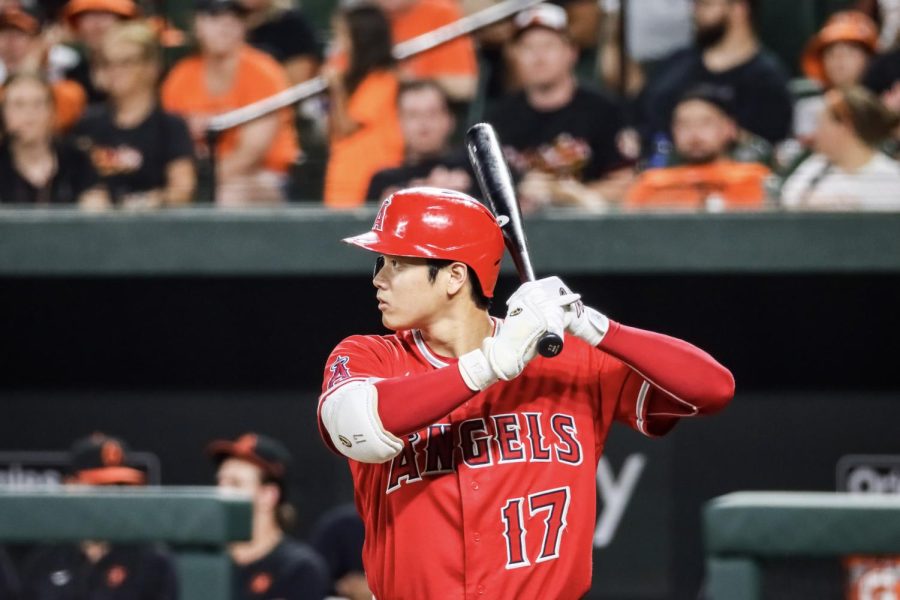MiLB tentatively agrees to first CBA with MLB
CBA would double the pay at each level
Shohei Ohtani batting in an MLB game.
April 1, 2023
For a long time, minor leaguers have been underpaid and had to pursue jobs over the offseason just to make ends meet. With the first-ever collective bargaining agreement that the MiLB agreed to with the MLB, that should no longer be a problem.
The CBA will double player pay and represents the largest-ever gains in the rights of minor leaguers, according to Jeff Passan.
MiLB fought last year to unionize under the Major League Baseball Players Association to advocate for higher pay and better conditions. In 2021, MiLB players got better housing with a new policy that allows athletes to have less stress about their living, according to Ballpark Digest.
As for the CBA, it is for five years and the main focus of it is to increase player pay as well as pay players almost year-round, except for six weeks in the winter. it will need to pass a player vote, but there is little worry that it won’t go into effect.
The pay changes are as follows, per Passan:
Complex league: $4,800–$19,800
Low-A: $11,000–$26,200
High-A: $11,000–$27,300
AA: $13,800–$30,250
AAA: $17,500–$35,800
Much of the movement for minor leaguer player empowerment has come within the previous three years with several players exposing poor living and pay conditions on social media. With the first-ever unionization and first-ever CBA, things are looking up regarding players being able to make a living on their contracts and focus solely on improving their performance.
Outside of strict pay increases, there are several other positive quality of life improvements for players, per Evan Drellich of The Athletic:
– Full name, image and likeness rights, which previously had been controlled by the league. By receiving them, the union can leverage group-licensing deals.
– A six-year reserve, instead of seven years, for future players who enter affiliated baseball at 19 or older. The shorter reserve period allows players — most of whom will have played in college — to reach minor league free agency earlier.
– Expanded medical rights, including, under some circumstances, the right to a second opinion on an injury as well as an expanded time period for post-injury medical expenses to be covered.
– Joint drug and domestic violence policies, to be patterned after the agreed-upon policies previously negotiated by the league and union.
– A no-strike, no-lockout provision under the terms of the deal, which will run until after the 2027 season.
Garrett Broshuis, co-founder of MiLB advocates tweeted his appreciation for the players association getting the deal done and improving pay for the players.
“This is big. Nearly a decade of fighting has led to this, and players have achieved what was once thought undoable. Good work by the PA,” he Tweeted.











